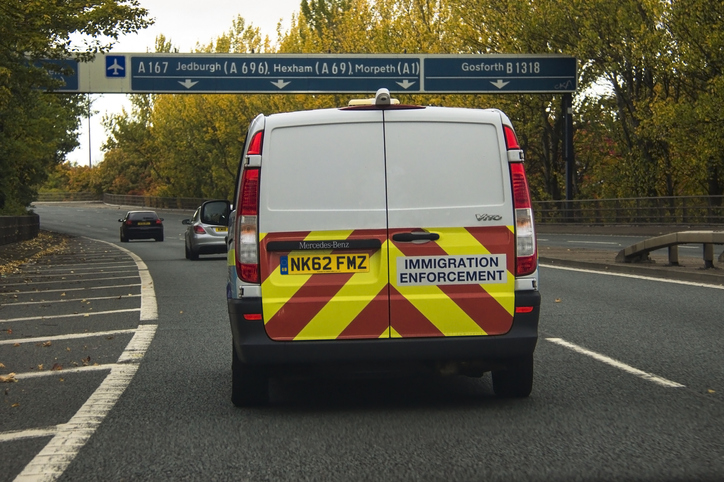Right to work checks
The Right to Work checks are an important part of recruiting staff in the UK. Since 2014 the Home Office have operated a civil penalty system which has generated millions of pounds of revenue in the UK through fines imposed on employers who fail to undertake the correct documents for new starters.
The simple task of requesting a relevant document to show that a potential employee has a legal right to work in the UK is now a regimented routine for all employers simply because of the size of the potential financial penalty. With up to £20,000 imposed for employing a worker who does not have the right to work or a relevant document to show a right to work, employers must ensure that their processes are capable of recording and maintaining data for European workers from 1 July 2021, who will need to have a current immigration status to be able to work in the UK.
Employers must check that a job applicant is allowed to work in the UK before employment commences.
The checks can be conducted by either:
- checking the applicant’s original documents; or
- check the applicant’s right to work online (using a share code from the applicant)
Employers must not discriminate against anyone because of where they’re from.
Employing EU, EEA and Swiss citizens
The right to work checks will continue to operate in the same way until 30 June 2021 for citizens of the EU, Switzerland, Norway, Iceland and Liechtenstein. Employers do not need to make retrospective checks for existing employees provided they remain in employment.
What to check
Employers must check that the documents are valid with the applicant present. Make and keep copies of the documents and record the date the check was made in a calendar and on the document. We recommend that the person checking the document signs it, dates it and scans a copy to the applicant’s HR file.
The employer must check that:
- the documents are genuine, original and unchanged and belong to the person you want to employ
- the dates for the applicant’s right to work in the UK have not expired
- photos are the same across all documents and look like the applicant
- dates of birth are the same across all documents
- the applicant has permission to do the type of work you’re offering (including any limit on the number of hours they can work)
- for students you must see evidence of their term and vacation times, this can be a printout from the university website or a letter from the university
- if 2 documents give different names, the applicant has supporting documents showing why they’re different, such as a marriage certificate or divorce decree
Follow-up checks
If an employee’s right to work is time-limited (i.e. has a visa end date), you’ll need to check their documents again when it’s due to expire. We recommend recording the dates in a central calendar with reminders at multiple intervals, (such as 3 months before expiry and 1 month before expiry) so that the employee has plenty of time to request an extension.
Taking a copy of the documents
- make a copy that cannot be changed, for example a photocopy
- make sure the copy is clear enough to read
- for passports, copy any page with the expiry date and applicant’s details (for example nationality, date of birth and photograph) including endorsements, for example a work visa
- for biometric residence permits and residence cards (biometric format), copy both sides
- for all other documents you must make a complete copy
- keep copies during the applicant’s employment and for 2 years after they stop working for you
- record the date the check was made
The employer must ensure they follow data protection law when requesting or retaining documents.
If the job applicant cannot show their documents
Employers must ask the Home Office to check the employee’s immigration employment status using the Employer Checking Service (ECS). Note that permission is required from the employee to submit a request using ECS.
The ECS should be used if any of the following apply:
- the employee cannot provide their documents because of an outstanding appeal or application with the Home Office
- the employee has an Application Registration Card
- the employee has a Certificate of Application that is less than 6 months old
- the employee is a Commonwealth citizen who’s been living in the UK since before 1988
- Application registration cards and certificates of application must state that the work the employer is offering is permitted. Many of these documents do not allow the person to work.
The Home Office will send a ‘Positive Verification Notice’ to confirm that the employee/applicant has the right to work. This document must be kept on file. It is valid for 6 months only. If your employee does not receive a decision on their application, another request must be submitted using the ECS.
COVID19 – Temporary measures
The right to work checks have been temporarily adjusted due to coronavirus (COVID-19). This is to make it easier for employers to carry them out. These measures are effective from 30 March 2020.
The following changes have been made to the regular right to work checks:
- checks can now be carried out over video calls
- job applicants and existing workers can send scanned documents or a photo of documents for checks using email or a mobile app, rather than sending originals
- employers should use the Employer Checking Service if a prospective or existing employee cannot provide any of the accepted documents
Checks continue to be necessary and employers must continue to check the prescribed documents listed in right to work checks: an employer’s guide. It remains an offence to knowingly employ anyone who does not have the right to work in the UK.
Because of COVID-19, some individuals may be unable to evidence their right to work. During this period, employers must take extra care to ensure no-one is discriminated against as a job applicant or employee because they are unable to show their documents. For more information, please see the code of practice for employers: avoiding unlawful discrimination while preventing illegal working.
Conducting a right to work check during the temporary COVID-19 measures
- Employers should ask the employee/applicant to submit a scanned copy or a photo of their original documents via email or using a mobile app.
- Employers may arrange a video call with the employee/applicant and ask them to hold up the original documents to the camera and check them against the digital copy of the documents.
- The employer must then record the date the check was made and note it as “adjusted check undertaken on [insert date] due to COVID-19”
- If the employee/applicant has a current Biometric Residence Permit or Biometric Residence Card or status under the EU Settlement Scheme the employer can use the online right to work checking service while doing a video call – the employee/applicant must give you permission to view their details
If the employee/applicant cannot show their documents
The employer must contact the Home Office Employer Checking Service. If the person has a right to work, the Employer Checking Service will send you a ‘Positive Verification Notice’. This provides the employer with a statutory excuse for 6 months from the date in the notice.
The Home Office will notify employers when these temporary measures will end. Once the measures end normal right to work checks will resume as set out in the right to work checks: an employer’s guide.
Retrospective right to work checks
Employers will be asked to conduct retrospective checks on existing employees who:
- started working during these measures; or
- required a follow-up right to work check during these measures.
Employers should mark this check: “the individual’s contract commenced on [insert date]. The prescribed right to work check was undertaken on [insert date] due to COVID-19.”
The retrospective check must be carried out within 8 weeks of the COVID-19 measures ending and both checks should be kept on file.
The Home Office will not take any enforcement action against employers if they carried out the adjusted check, or a check via the Home Office, and followed this up with the retrospective check.
If, at the point of carrying out the retrospective check, an employer discovers an employee does not have permission to be in the UK, their employment must be terminated.
If the check undertaken during the adjusted period was done in the prescribed manner, the employer does not need to undertake a retrospective check.
It is important that employers who took on staff during the lockdown period, make a note in the employees file so that retrospective checks will be undertaken when they are required.
If you have any further questions about the contents of this article or if you need assistance on implementing right to work processes, please contact [email protected] in the immigration team at FSP.

